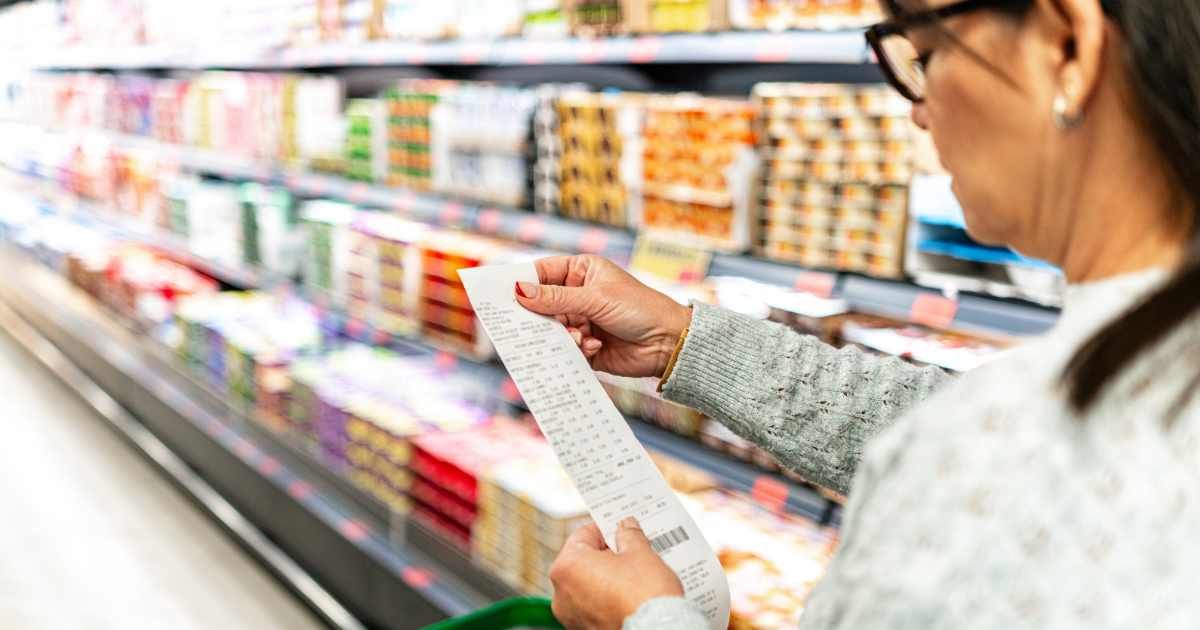There's An App That Scans Your Grocery Receipts and Shows the Carbon Footprint of Your Purchases

To fight the climate crisis, every individual on the planet must contribute to minimizing their impact and reducing carbon emissions altogether. Two entrepreneurs realized the potential of reducing carbon emissions at the most basic level– consumer behavior. Food production and agriculture function depending on the consumer market. We know the food production industry accounts for 30% of the world's greenhouse gas emissions, as per the European Commission, but the impact of what we eat is largely unknown. Evocco, a Dublin-based startup, envisions bridging the gap between individual consumers and their climate impact with their application, and it’s already making waves across the U.K. and Ireland, per CNN Business.

Green startup calculates consumer impact on climate

Co-founders Hugh Weldon and Ahmad Mu’azzam founded the app in 2017 and have since aspired to simplify every consumer’s carbon footprint with their algorithm. “It lets you track, improve, and offset the climate impact of your food purchases,” said Weldon. To efficiently track the data, users must photograph their grocery receipt using the app, and the rest will be taken care of. The complex algorithm of the app will read the printed text on the receipt and calculate its carbon footprint through consideration of the store location and assessing the product type, weight, and origin. The app then compares the retrieved data with its database to estimate the climate impact of the purchase.

“Apps like Evocco make it easier for people to engage with the challenge and take positive, meaningful action,” said John Beckett, founder of Go Carbon Neutral, an Irish non-profit initiative that plants native woodland across the country. The non-profit collaborates with Evocco to offset shopper purchases with contributions that go towards planting woodlands and influence consumer behavior. Meanwhile, the database for the app is maintained by Eaternity, a life cycle assessment company in Switzerland. The database helps estimate the climate impact in receipts with scarce information, using additional factors like export statistics and national imports of the supply chain. Animal products are generally more expensive to the environment, in addition to refrigerated and seasonal products.
Consumers are intrigued

As many may not expect, consumers have shown increasing interest in their impact on the environment. 57% of consumers are eager to limit their consumption habits to help the environment, per a 2020 IBM survey. “While personal carbon footprint tracing is still in the early stages … there is definitely a desire among consumers to be able to trace and authenticate the environmental claims of the products they buy,” Karl Haller, global leader of the Consumer Center of Competency at IBM, told the outlet. TCDAlumni shared an interview talking about Evocco co-founders Weldon and Mu'azzam.
Co-founder Mu’azzam revealed that they felt the need to act on the climate crisis, which they saw as the “greatest challenge” of the current times. This is how Evocco was born, right after Weldon and Mu’azzam graduated from Trinity College in Dublin and dedicated their professional lives to the fight against climate change. However, it was found in 1988 that 71% of the global greenhouse gas emissions were a result of only 100 companies. While managing GHG emissions on a consumer level is effective, major corporations should take greater responsibility to ensure a greener future for the planet, according to the University of Manchester.
More on GreenMatters
Here’s How Much Taylor Swift’s Jet Alone Has Contributed to Carbon Emissions in 2023
Scientists Find the Biggest Source of Microplastic Pollution — and It’s Not Straws or Grocery Bags